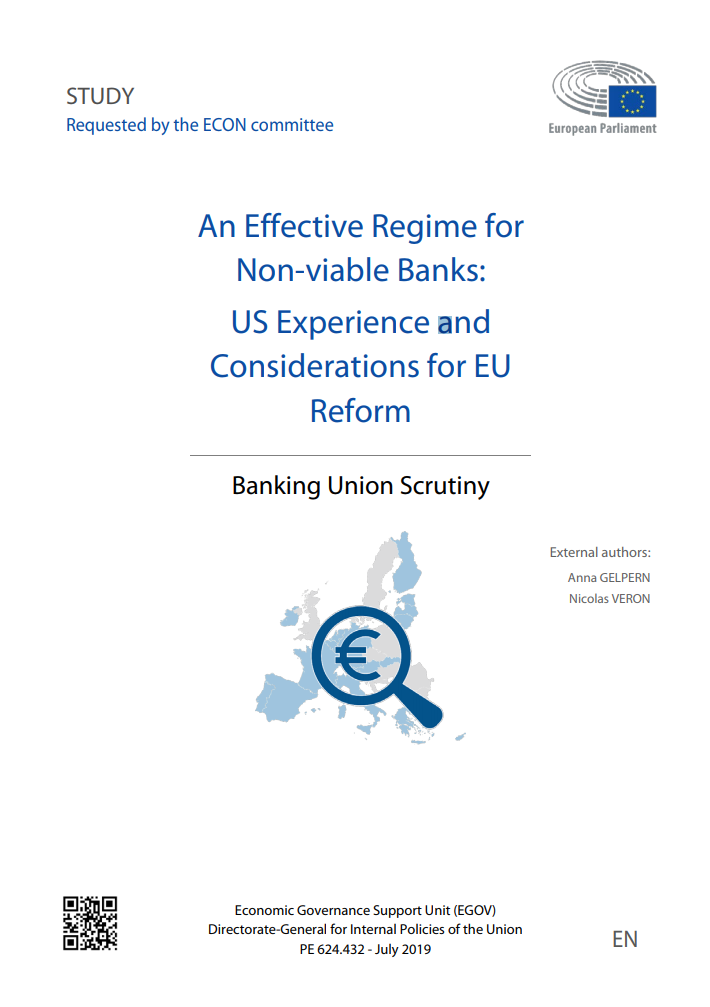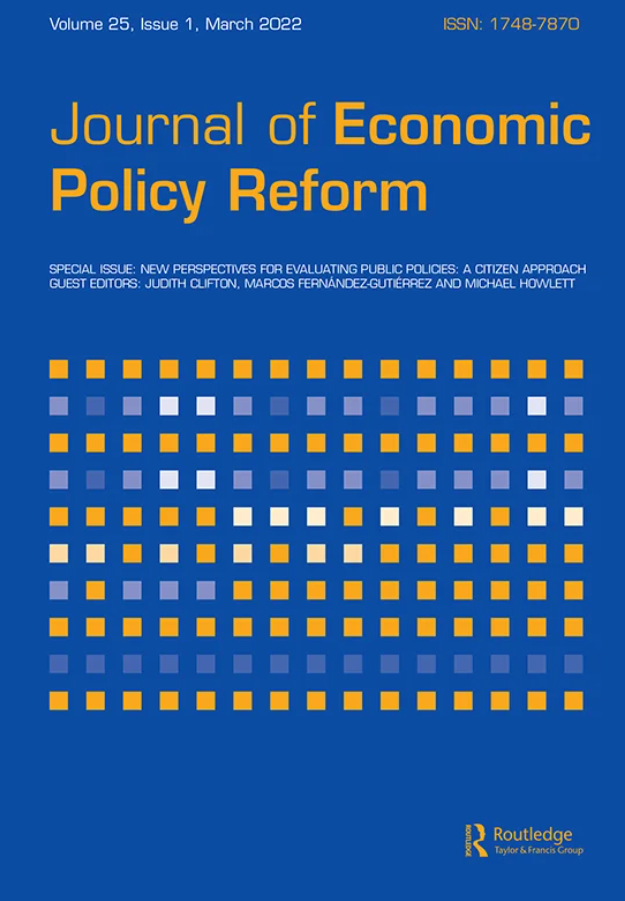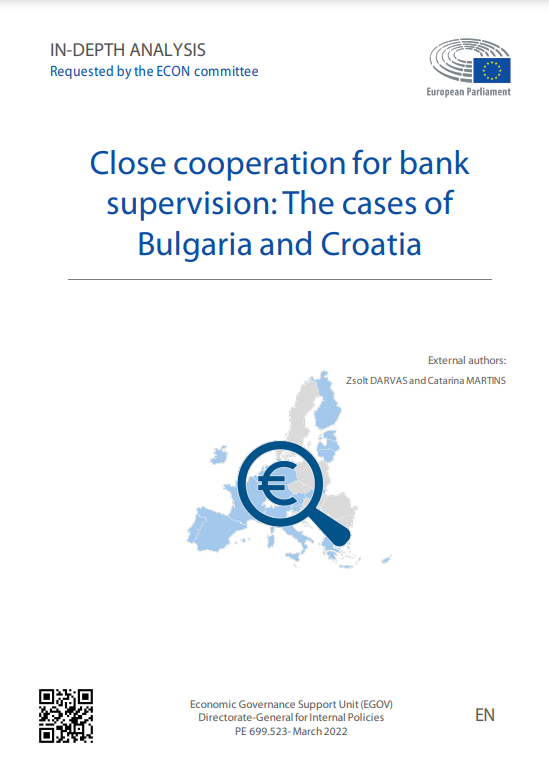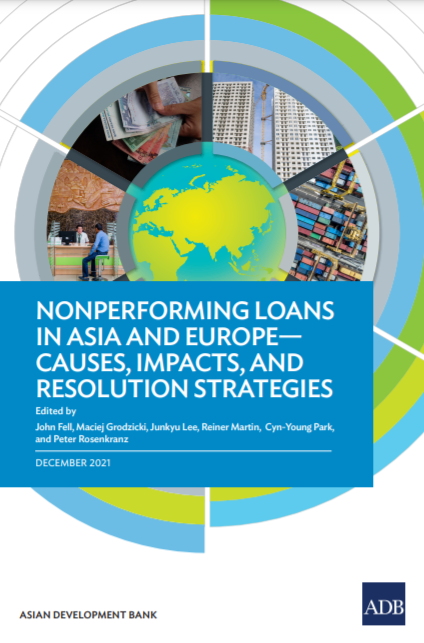External Publication
An Effective Regime for Non-viable Banks: US Experience and Considerations for EU Reform
The US regime for non-viable banks has maintained a high degree of stability and public confidence by protecting deposits, while working to minimise the public cost of that protection. EU reformers can draw valuable insights from the US experience. A review of the US regime supports arguments in favour of harmonisation and centralisation of bank insolvency proceedings and deposit insurance in Europe’s banking union.
This study was requested by the European Parliament’s ECON committee.
For 85 years, the US regime for non-viable banks has maintained a high degree of stability and public confidence by protecting deposits, while working to minimise the public cost of that protection.
With awareness of the difference in context, EU reformers can draw valuable insights from the US experience. On balance, a review of the US regime supports arguments in favour of harmonisation and centralisation of bank insolvency proceedings and deposit insurance in Europe’s banking union.
A unitary regime would improve on the current EU status quo along multiple dimensions: deposit protection, creditor rights, controlling moral hazard, predictability and operational effectiveness, transparency and accountability, and financial stability. It would help break the bank-sovereign vicious circle in the euro area. The US experience suggests that substantial improvements are achievable in a well-designed system of institutional checks and balances that learns and adapts over time.
















